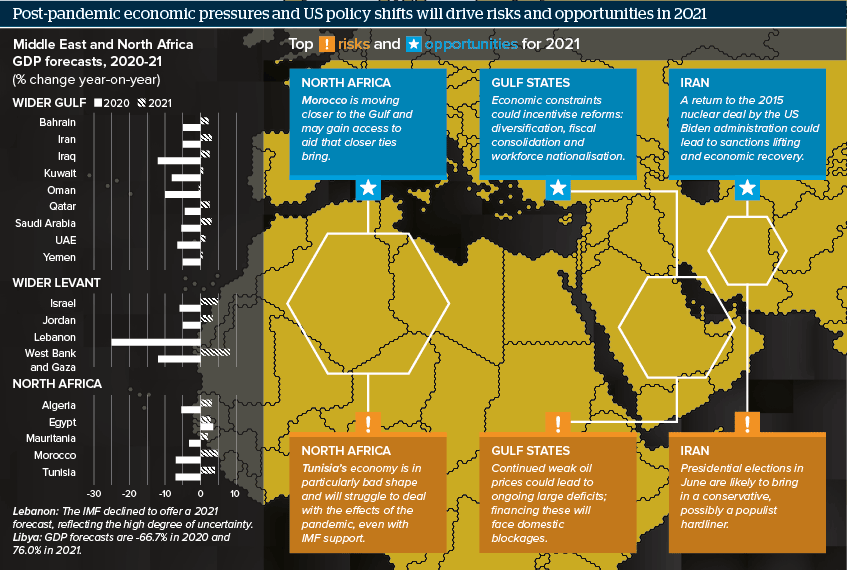Risks and opportunities 2021: Middle East/North Africa
COVID-19-driven economic turmoil is unlikely to translate into political change
Source: IMF World Economic Outlook October 2020; Oxford Analytica Map styling: ‘Wargames’ by Daniel P. Huffman via Project Linework
Outlook
The incoming US Biden administration will require political rebalancing across the region. The Gulf Cooperation Council rift will narrow as Saudi Arabia and Qatar manage their rapprochement, despite Emirati and Bahraini concerns.
Successful nuclear diplomacy with Iran might also open new avenues elsewhere. In the Gulf, regional collective security could return to the agenda. An easing of proxy conflict might provide some relief to Damascus, Beirut and Baghdad.
The lack of genuine participatory politics means that rising discontent because of increased poverty and unemployment are unlikely to derail establishment control of 2021 elections due in Algeria, Morocco, Iran and Iraq.
Impacts
- Libya’s oil gains could be reversed without progress on political negotiations.
- Yet another round of polls in Israel will increase right-wing competition, including over settlement policy, pressuring the Palestinians.
- A Biden administration human rights agenda may motivate Saudi Arabia to end its Yemen war role but will fall on deaf ears in Egypt.
See also
- Prospects for Iran in 2021 - Nov 30, 2020
- Prospects for the Levant in 2021 - Nov 17, 2020
- Prospects for the Gulf states in 2021 - Nov 16, 2020
- Prospects for North Africa in 2021 - Nov 9, 2020
- More graphic analysis
